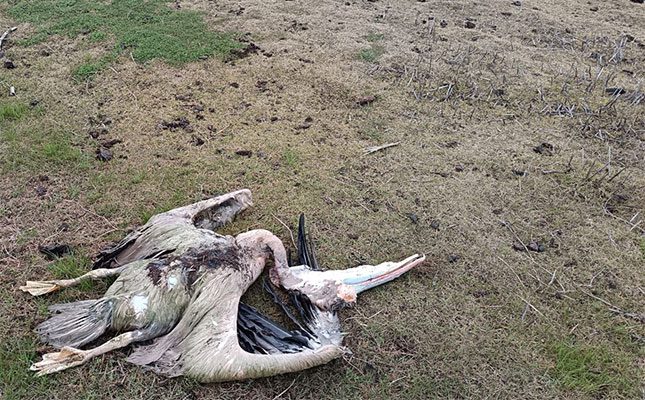
An outbreak of highly pathogenic avian influenza (HPAI) was recently reported on a farm near Paarl in the Western Cape, according to Izaak Breitenbach, CEO of the Broiler Organisation at the South African Poultry Association.
This followed after three ducks tested positive for the disease on the farm. The infected ducks and associated chickens were culled to contain the disease.
READ Over 100 000 chickens culled as bird flu returns
Earlier outbreaks were reported on broiler breeder farms in eMkhondo (formerly Piet Retief) in Mpumalanga, and Licthenburg in North West.
Breitenbach said no further outbreaks on farms had been confirmed at this stage. However, he raised concern about the presence of the virus in wild birds.
“We suspect that all the outbreaks so far can be traced back to infected wild birds. Usually, we only see outbreaks from spring when the wild birds start to migrate from the north to us, but this year it has started much earlier. We will need to stay on high alert for the next six months,” he said.
According to the Western Cape Department of Agriculture, HPAI has been responsible for mortalities in great white pelicans near Malmesbury in the Swartland and Hartlaub’s gulls in the Cape Town area of the Western Cape. These are the first wild bird cases reported in the Western Cape since April 2024, and the first mass mortalities since 2022.
Vaccine intervention
Breitenbach said that while Astral Foods had begun vaccinating its birds against the disease, broader industry rollout was still hampered by strict regulatory requirements.
Discussions with government were underway to ease biosecurity and monitoring protocols so that other producers, particularly breeders and layer farmers, could access vaccines more easily. (Broilers, due to their short life cycle, are not vaccinated against the disease, as they are considered less vulnerable.)
“We hope to see a resolution within the next month or two,” Breitenbach said.
Even with full approval, however, Breitenbach warned that it could take about a year to achieve meaningful vaccine coverage across the national commercial and breeder flocks, due to logistical hurdles.
In the meantime, he urged producers to tighten their biosecurity measures.
“Besides all the standard biosecurity practices, farmers need to be especially vigilant to prevent the virus from entering poultry houses via wild birds or workers, who may have been unknowingly exposed. This is easier said than done, as the virus can even be carried on dust particles.”
From its side, the Western Cape government has urged the public and agriculture sector to help prevent the spread of HPAI by reporting any sightings of unusual numbers of sick or dead wild birds found close together (three or more seabirds, but fewer for solitary birds of prey).
In terms of biosecurity, the department emphasised that access to farms needed to be restricted as far as possible, with nobody who had been in contact with poultry over the past 48 hours allowed on the property.
Poultry also needed to be kept away from wild birds.
Additionally, the introduction of the virus to farms through contaminated clothes, footwear, vehicles or other equipment needed to be prevented by disinfecting vehicles upon entering and exiting the property and disinfecting footwear upon entry and exit to poultry houses.
People entering the poultry houses should also shower and put on sanitised clothing before entering a poultry house.
Farmers were also reminded that avian influenza is a controlled disease in terms of the Animal Diseases Act No. 35 of 1984, so suspected cases needed to be reported to the local State Veterinarian upon detection.
Get trusted farming news from Farmers Weekly in Google Top Stories.
➕ Add Farmers Weekly to Google ✔ Takes 10 seconds · ✔ Remove anytime





